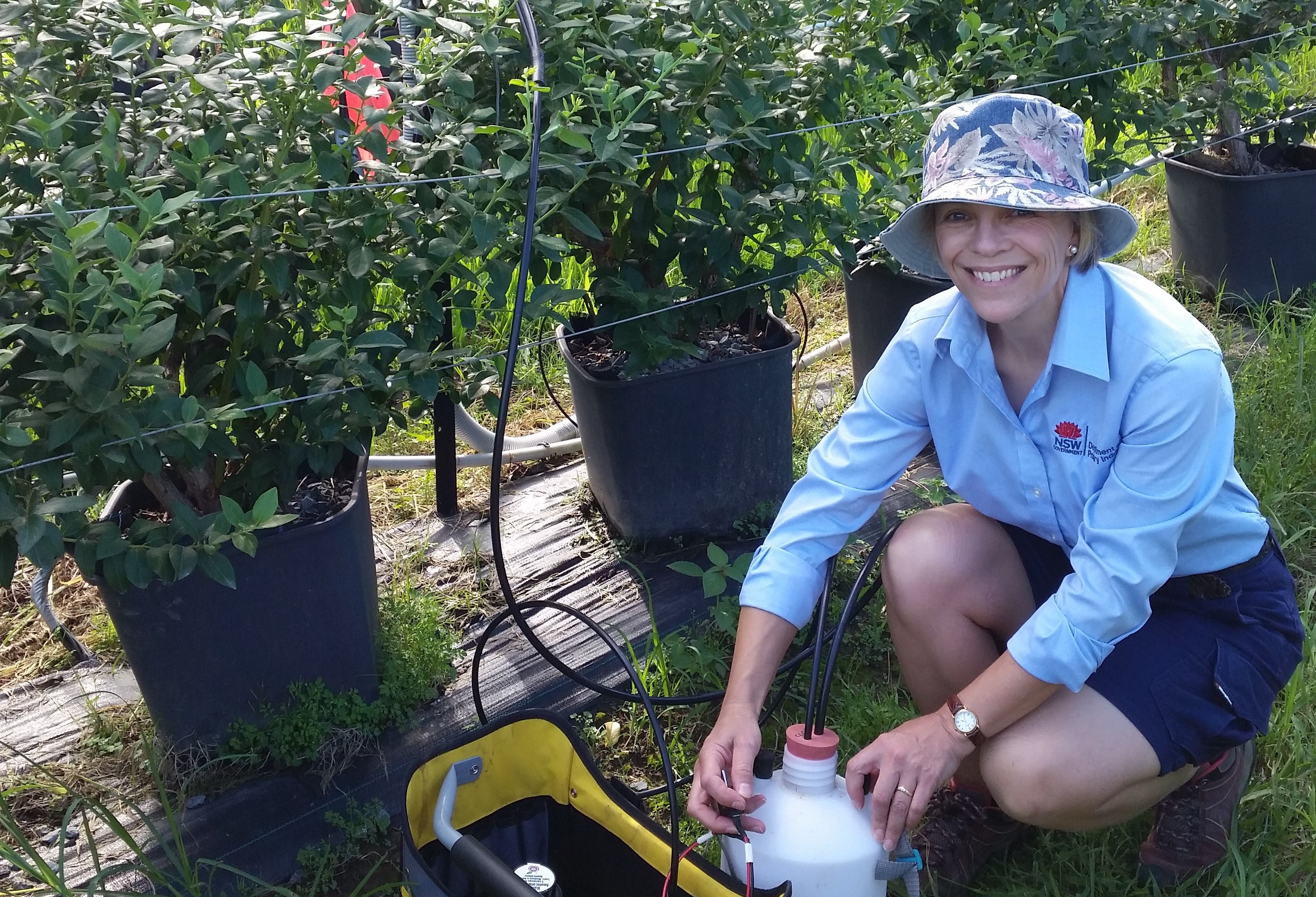
FSG Webinar 6: Growing blueberries in substrate – a nutrition case study
Dr Sophie Parks discusses the nutrition requirements of blueberries grown in substrate with a focus on ammonium and nitrates.
Dr Parks also provides an update on Clean Coastal Catchments (CCC) funded fertigation trials at Wollongbar and Ourimbah, where the CCC team have been working on evidence based nitrogen recommendations for Australian conditions.
Click on the link below to listen to the audio from Friday 12 March 2021:

Dr Sophie Parks is a DPI Senior Research Scientist with the Department of Primary Industries whose work focuses on growing practices that affect the yield and quality of horticultural produce and the sustainability of production systems.
Based at the Central Coast Primary Industries Centre, Ourimbah, Dr Parks is investigating fertigation methods to increase fertiliser use efficiency in evergreen blueberries and techniques for thinning flowers and fruit to promote fruit size and quality.
Through the Clean Coastal Catchments Project, Dr Parks is currently analysing the nutritional needs of evergreen blueberry plants growing in hydroponics and in the field.
Her previous research on vegetable crops has investigated the production efficiency of cucumber plants under different levels of greenhouse climate control, nitrate accumulation in leafy vegetables, and Asian vegetables grown in hydroponic, protected cropping systems.
Interim fertiliser guidelines for Australian blueberry growers
In early 2020, Dr Parks compiled new Department of Primary Industries (DPI) fertiliser guidelines for the blueberry industry to address the current lack of locally appropriate information for Australian growers.
The Clean Coastal Catchments project is currently investigating the nitrogen needs for Southern Highbush grown as an evergreen crop, particularly in the Coffs Harbour and Central Coast regions of NSW.
Dr Parks research into better matching of fertiliser application to crop needs aims to help growers keep nutrients on farm, benefiting both productivity and profitability, while more efficient fertiliser application can reduce the risk of excess nutrients ending up in farm run off and polluting water quality in creeks and rivers and the marine estate.
Read more about Dr Parks Interim Fertiliser Guidelines for Australian Blueberry Growers

